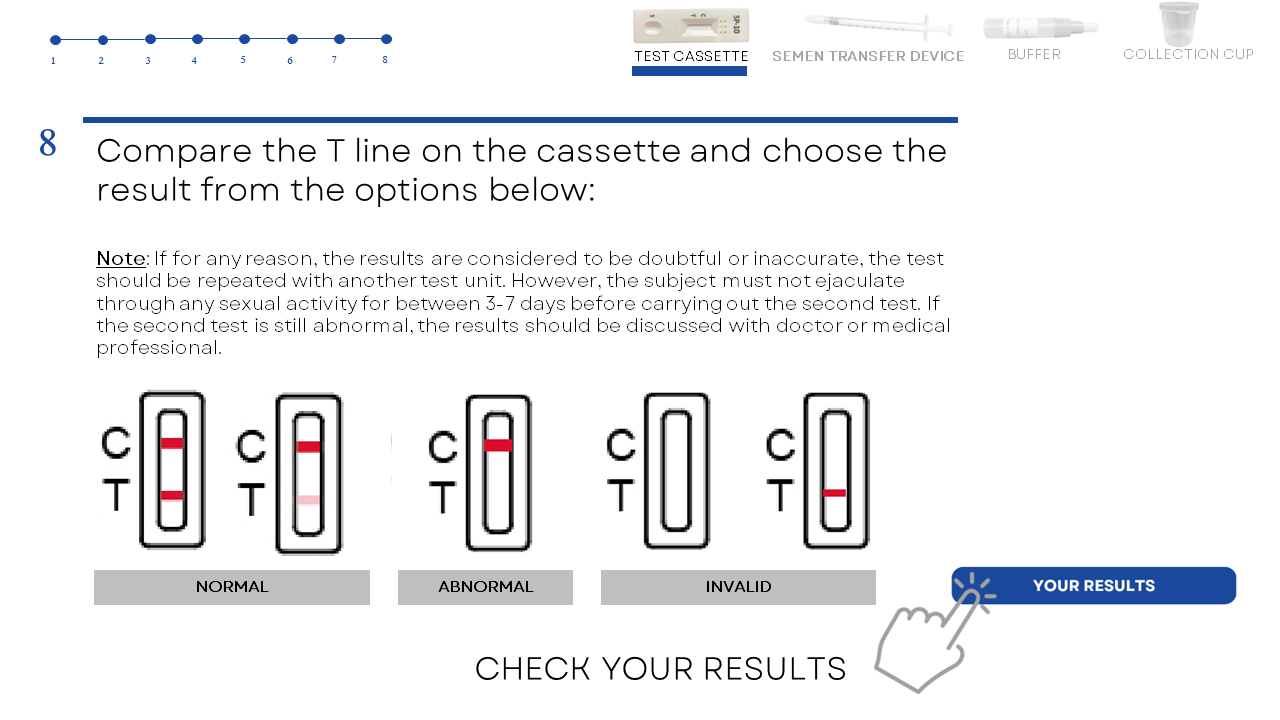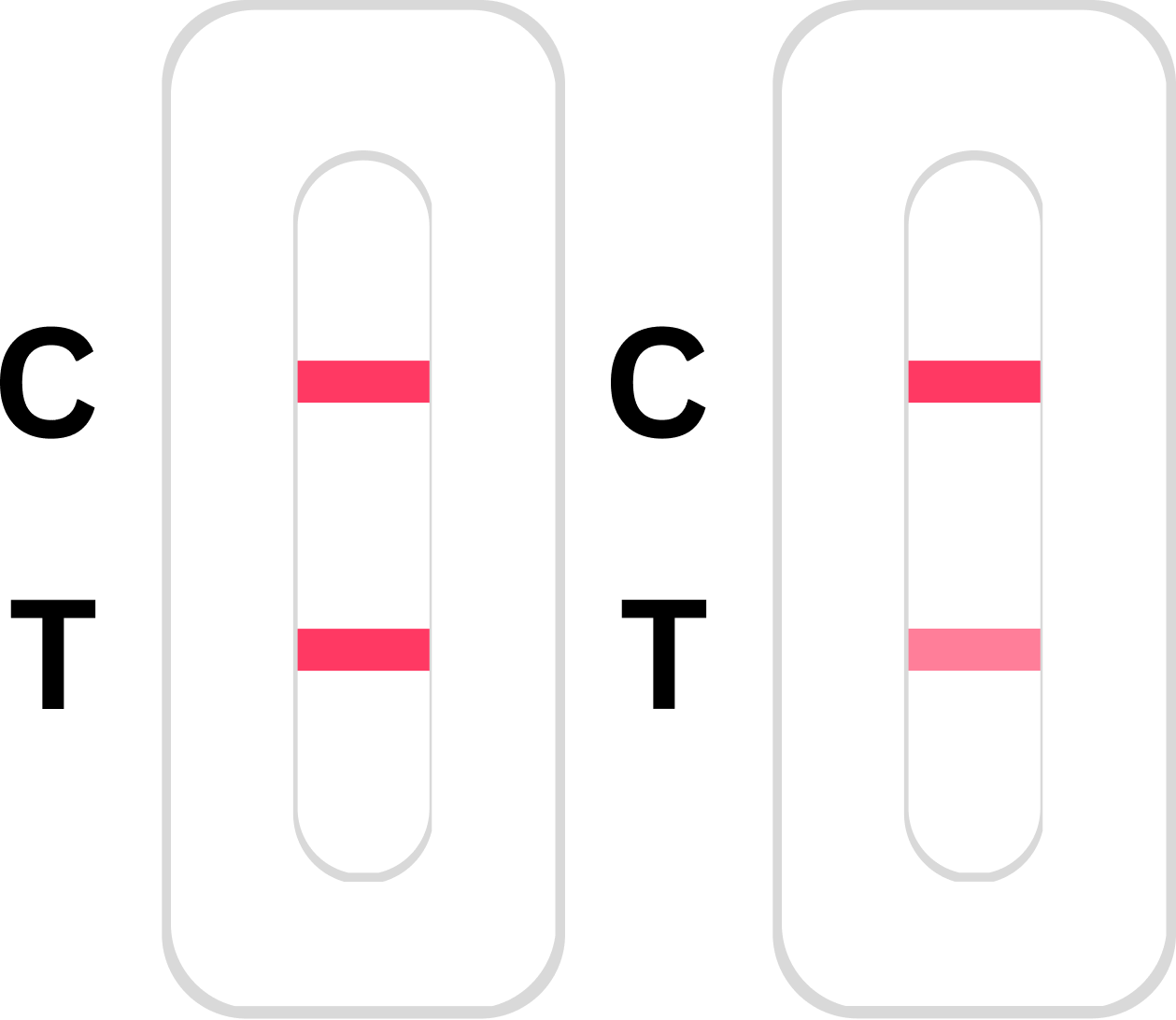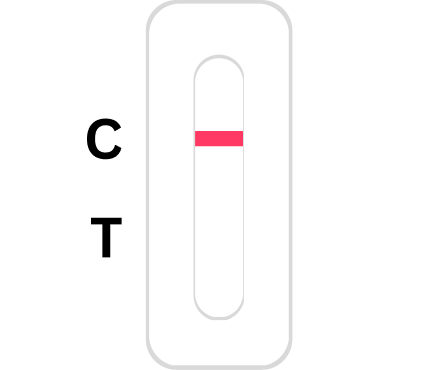Test Overview
Symptoms
The main sign of male infertility is the inability to conceive a child. There may be no other obvious signs or symptoms. In some cases, however, an underlying problem does have signs and symptoms. These may include
A condition that affects your testicles may cause: pain and swelling in your testicles or prominent veins in on your testicles.
A problem with your prostate gland or tube that carries sperm from your testicles may cause: blood in your semen, pain when ejaculating or trouble ejaculating when you have sex
Low hormone levels may cause: problems getting or keeping an erection, changes to your mood, tiredness, weight gain, lower sex drive (libido), growth of male breasts, or less facial hair.
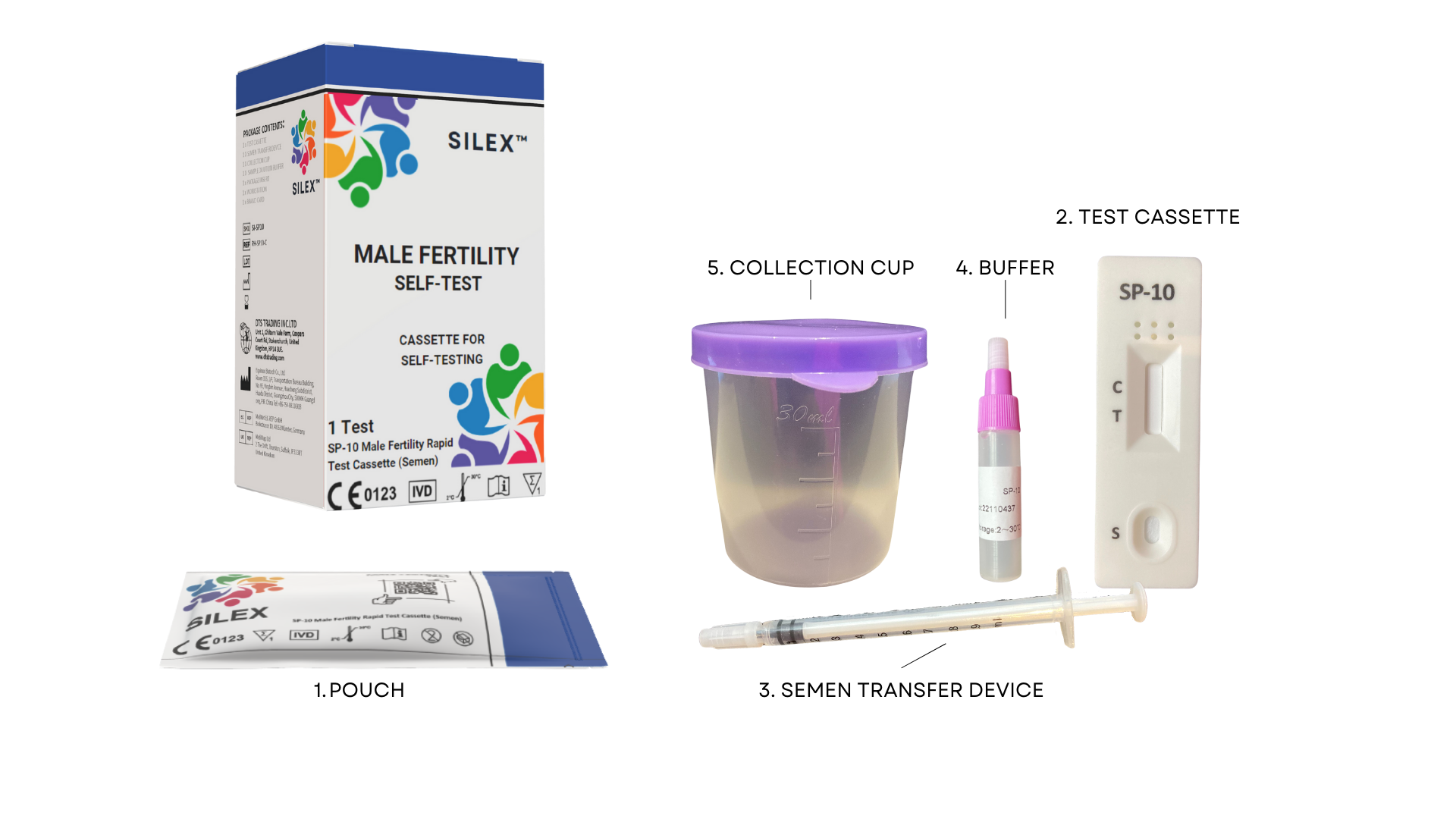

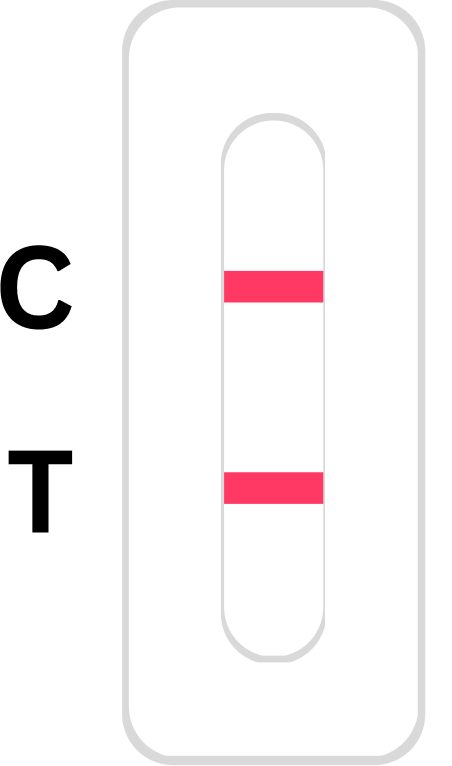
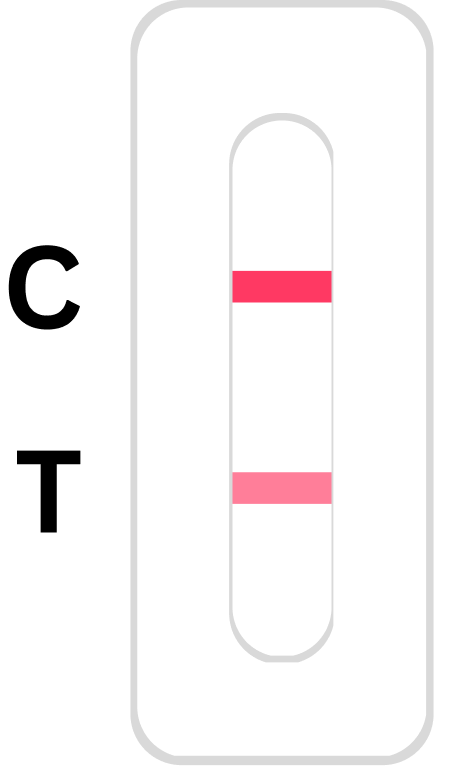
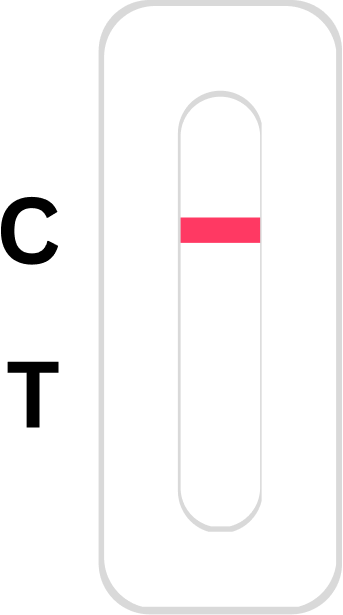
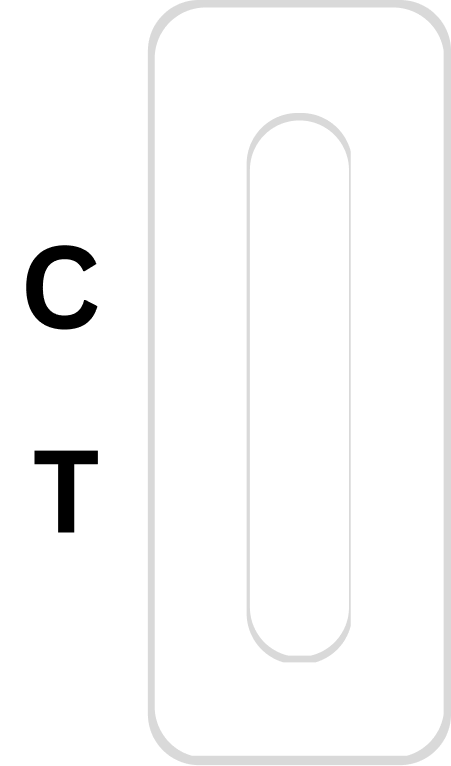
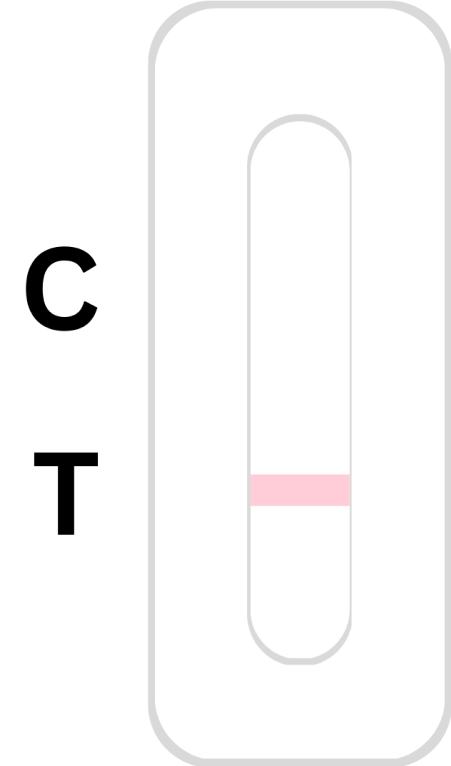
FAQs
One of the main things is having regular vaginal sex. Regular sex means every 2-3 days. You can also optimise the time when you have sex with when your partner ovulates. You can find out when this is by using one of SILEX Ovulation self-test kits.
There are also a number of lifestyle changes you can make to improve your chances of becoming a dad.
- Sperm temperature - keeping your testicles cool can help to produce high-quality sperm. You can keep your testicles cool by not using tight-fitting underwear and avoiding hot baths/hot tubs.
- Smoking - smoking can reduce fertility and so you should give up to improve your chance of becoming a Dad.
- Alcohol - drinking above the recommended weekly units of alcohol (14 units) can reduce the quality of your sperm.
- Recreational drugs - some recreational drugs can reduce sperm quality. These include, but are not limited to cannabis, cocaine and anabolic steroids.
- Medicine - some medicines may reduce the quality of your sperm so discuss with your doctor if you are taking a medicine and want to see if it affects your fertility.
- Diet, weight and exercise - eating a healthy, balanced diet and maintaining a healthy weight are essential for high-quality sperm.
Sperm problems may be the cause of infertility in 50% of couples suffering from infertility.
- Sperm disorders: This includes not enough sperm, sperm that don't move fast enough, or sperm that are a different shape to normal.
- Hormonal problems - those with “hypogonadism” don't produce enough of the hormone testosterone. This may affect your sperm count, sex drive (libido) or mean you can't get an erection/ ejaculate.
- Ejaculation disorders
Other things that can affect fertility include: smoking, alcohol, illegal drugs, infections, your scrotum being too warm, medicines and obesity.
The main sign of male infertility is the inability to conceive a child. There may be no other obvious signs or symptoms.
In some cases, however, an underlying problem does have signs and symptoms. These may include:
- Pain and swelling in your testicles, or prominent veins in your testicles may suggest there is an issue with the blood supply to your testicles.
- A problem with your prostate gland or tube that carries sperm from your testicles may cause fertility problems. This can present as blood in your semen, pain when ejaculating or trouble ejaculating when you have sex.
- Low hormone levels may cause problems getting or keeping an erection, changes to your mood, tiredness, weight gain, lower sex drive (libido), growth of male breasts, or less facial hair. Low hormone levels will have an effect on your sperm.
The male infertility test will assess the number/concentration of your sperm. An average sperm count for a male is 15million sperm/ml of semen and the test assesses if your sperm count is above or below this concentration threshold. Problems with sperm, including low sperm count are common in males and account for approximately 50% of cases of male infertility.
A low sperm count is also called “oligozoospermia”. This is when an ejaculate has fewer than 15 million sperm per ml of semen. Having a low sperm count can make it more difficult to conceive naturally.
In many cases, it is not obvious what causes low sperm count. Low sperm count can be caused by the following conditions:
- Hormone imbalance
- Genetic problems, e.g. Kleinfelter’s syndrome
- Having had undescended testicles as a baby
- Structural problems, e.g. blockage in the tubes carrying sperm
- Genital infection e.e. chlamydia
- Varicoceles
- Testicles becoming overheated
- Certain medications
- Excessive alcohol/smoking
- Being overweight or obese
There are several options available.
- Lifestyle changes including: stopping smoking, alcohol within recommended limits, no recreational drugs, healthy diet, health weight and keeping your testicles cool.
- Most importantly, keep trying. You may still be able to conceive, it might just take longer.
If you still are not able to conceive, another option is assisted conception. This can take the form of:
- IVF (in vitro fertilisation),
- ICSI (intracytoplasmic sperm injection), or
- Gonadotrophin medicine (helps to stimulate sperm).










